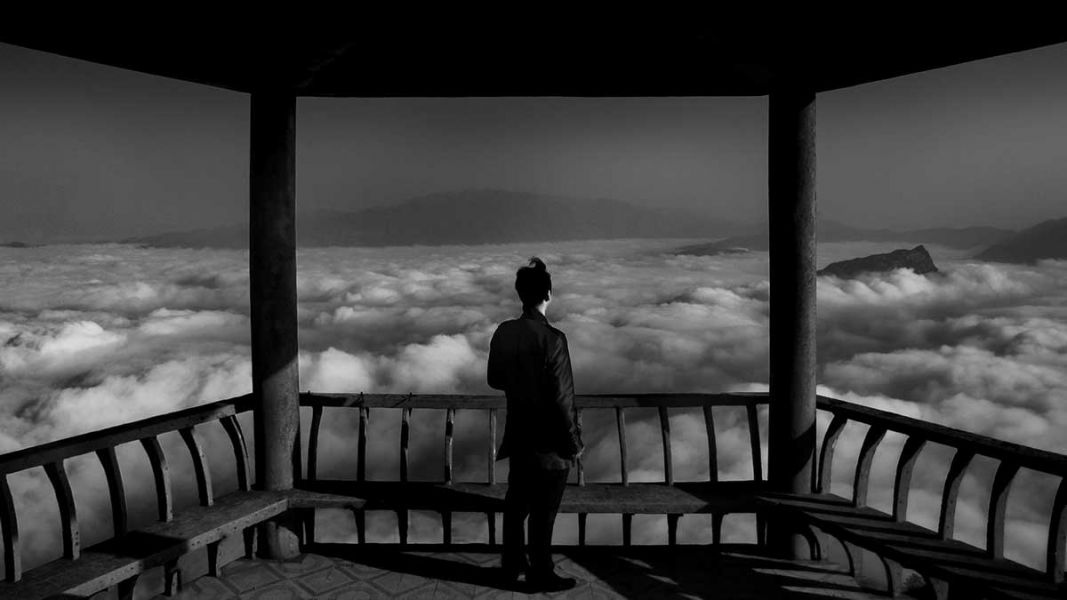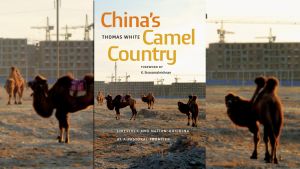
State of Sensitivity: Navigating Fieldwork in an Increasingly Authoritarian China
It took me several years of doing fieldwork in China to come to terms with this simple fact: that research was only going to get more difficult, not less. The People’s Republic of China (PRC) has always been a politically sensitive environment for foreign researchers—as any China scholar would readily admit—but the rise in Party-state authoritarianism in the Xi Jinping era has narrowed the topics that can be studied, reduced access to field sites and institutions, and increased surveillance over our activities and (potentially) our collaborators and interlocutors. My first fieldwork in China in the late 2000s, which involved interviewing ethnic minority entrepreneurs in Xinjiang, is almost unimaginable today. My doctoral work on ‘small’ hydropower in Yunnan in the mid-2010s only survived through sponsorship from a high-ranking university in Beijing and collaborations with clued-in local professors. In the summer of 2018, when I visited Yunnan again, one of these professors suggested we conduct our next research project outside of the country, since he felt that any domestic research would be too sensitive. What are foreign scholars to do in this kind of ‘state of sensitivity’?
This essay reflects on the process of designing, conducting, and writing about fieldwork in a country where political sensitivity is an ever-present concern. What follows is not a how-to guide, nor an analysis of research possibilities and constraints—these vary widely over time and space, and according to each scholar’s positionality. Rather, I critically examine my own experience as a way to draw out ‘collective problems’ (Heimer and Thøgersen 2006, 2) that China researchers often encounter, but do not always discuss. My objective is to provide a sense of cautious optimism for early-career scholars headed into the field: research in China is sensitive, and growing more so, but still possible, worthwhile, and important. Nonetheless, as China scholars, we need to be frank about the limitations to fieldwork, the moral dilemmas that we face when interacting with others, and the ways that we often internalise sensitivity in the research process itself.
Sensitivity, Research Design, and Framing
I almost did not study hydropower at all. On my first preliminary research trip to Yunnan, in 2013, I was introduced to two Chinese academics who convinced me that hydropower was too political due to its history of attracting domestic and international opposition (see Magee 2006; McDonald 2007; Tilt et al. 2009). I decided that it was better to avoid anything that could be considered sensitive and proposed a different topic instead. But on returning to Yunnan for longer-term fieldwork, and through informal discussions in Kunming, I came to understand an important distinction: that people were more than happy to talk about hydropower, even critically, if the conversation started with ‘small’ hydropower—a technology historically used for rural electrification in China. By situating my research as a study of small hydropower, and its role as China’s first renewable energy source, I could frame some aspects of hydropower as positive while giving interview subjects the option to talk about its negative consequences. In effect, we could avoid the appearance of sensitivity even if the content might drift in that direction.
I raise this example because it mirrors the experience of friends and colleagues working in China—that even when it seems like everything is sensitive, the topics and questions one can pursue are considerably more fluid. Navigating this sensitivity is both an issue of research design (i.e. what you plan to do) and research framing (i.e. how you describe to others what you are doing), which are in turn shaped by the politics of foreign research and our positionality in the field.
Research design in this context is an iterative and ongoing process—what O’Brien (2006) calls ‘research redesign’—that requires spending time in the field. Some scholars (myself included) arrive in China on an initial research visit with a specific idea that they aim to ‘test’; others may seek to narrow down a broad range of potential topics. These initial visits can be time-intensive and often seem unproductive; I remember feeling even less certain of my research direction after my preliminary fieldwork than before I arrived in China. But this time in the field, in hindsight, gave me the space to figure out thorny issues like setting up collaborations (and obtaining a ‘letter of introduction’), gaining access (or not) to government officials, and knowing which data were always going to be off-limits. Interviewing officials, I discovered, was far easier in rural Yunnan than in Kunming. Topics that seemed too sensitive ‘on the ground’ in Yunnan—like the social impacts of hydropower—were widely discussed among government researchers in Beijing. All the while, my background as a white, American male attracted scrutiny—and likely surveillance—but also opened avenues for research and conversations that would not otherwise have occurred (see Berlin’s essay in the present issue).
As my research design shifted, so did my framing. I was careful not to misrepresent my project—I was, after all, studying hydropower—but learned how to emphasise particular aspects for different audiences. With government officials, I talked about small hydropower’s role in rural development and forest protection; with investors and operators, I focussed on plant management; with farmers, I stressed the impact of hydropower on livelihoods; and with collaborators, I highlighted policy recommendations. All of these are accurate but partial portrayals of the research, and I was always forthcoming if asked about my overall project goals. But I am also mindful that ‘depoliticising’ (see Jiang’s essay in the present issue) how I presented my study to others risked ‘disciplining’ (Yeh 2006) the questions I would ask—a constant struggle that I would return to as I ‘redesigned’ my research throughout data collection.
Sensitivity, Access, and Interviews
My first visit to Daozheng county, where I conducted the most in-depth research, came about through an invitation from a local professor whom I began collaborating with halfway through my fieldwork period. The professor, several university researchers, and I met with two county-level officials and toured a small hydropower plant, but I found it difficult to steer interviews beyond the ‘approved’ version of events. Yet, when I returned a month later with just a local graduate student assistant—and asked very similar questions—the officials were critical and circumspect, and clearly more at ease talking one-on-one with students than in a large group. Indeed, my assistant and I often found it better to introduce ourselves as students rather than part of an international project, as this had the effect of lowering the stakes (and the perceived sensitivity) of the interview. At other times, officials were only willing to be interviewed once they learned of my American background (as was the case with a senior grid manager whose daughter studied in the United States). Navigating sensitivity in data collection was thus an exercise of testing both how to approach people for interviews and how to direct the interview itself.
A classic methodological approach to set up interviews is snowball sampling—speaking with a small number of informants first and asking for referrals (Bernard 2012). I found this strategy to be of limited use once I exhausted my initial introductions in Daozheng. Instead, at the county level, my assistant and I would often just show up unannounced at the government bureau (or small hydropower plant, or company office). Sometimes we would end up talking to the director for two hours; other times we had to return the next day; often no one would meet with us at all. While this approach was time-intensive and often frustrating, it enabled us to get our ‘foot in the door’ to a few offices—which we could then mention having visited when seeking out other interviews. In this way, even without referrals (which were rare), my assistant and I could quickly build rapport with officials and company directors who might otherwise be wary of interviews. Only later, once we had met with most relevant county-level officials, were we able to gain introductions to prefecture- and provincial-level government offices—a kind of margin-to-centre approach to gaining access. Even then, I was still never able to acquire sensitive data like the locations of plants or maps of electricity infrastructure—omissions that I had to account for in my research redesign.
The interviews themselves mirrored our margin-to-centre approach to gaining access, in that we would begin with pro-forma questions and use responses to try to get a ‘foot in the door’ to in-depth discussion. Here again, my (and our) positionality was crucial: my assistant and I were able to ask ‘dumb’ (and even sensitive) questions that a more established Chinese scholar might feel uncomfortable asking. A strategy we sometimes used to encroach on a sensitive issue—such as the social impacts of hydropower—was to ask how officials managed problems that had occurred ‘elsewhere’ (i.e. outside of their district, or China). Yet the risk of ‘disciplining’ my questions and censoring my views was ever-present—I often found myself hedging or sitting on the fence for parts of the discussion I felt were more sensitive, only to regret later that I had not been more forceful. To put informants at ease, my assistant and I did not record interviews, but would both take extensive notes for comparison and writing-up later that day.
Sensitivity, Publishing, and Self-censorship
Two years after my longest fieldwork period in China, I met with the director of a hydropower research institute about future collaboration. The director knew about my research from institute staff I had befriended, but believed my main goal was to ‘promote’ small hydropower rather than analyse its political economy. I wanted to collaborate and contribute to hydropower policy and management; but I also did not want to misrepresent my research. The only publications I could share were policy-relevant but still critical of current practice in a way that would be considered sensitive. I wondered whether I should redact some sections or call the manuscripts ‘drafts’. In the end, I decided to send the articles as they were—and (to my knowledge) received no pushback, even though I am still nervous about these kinds of interactions. I am still ‘disciplining’ myself after my fieldwork ended.
The common approach to writing about sensitive subjects is to ensure anonymity: to use pseudonyms, separate data from identifiers, and avoid any details that could be traced back to an informant. When I returned to the United States, following these rules seemed easy—and in any case, my dissertation and early publications were targeting an academic audience, who would likely not be familiar with my research sites. The problem of sensitivity became more tangible, though, when I was ready to share research with a Chinese audience: with my informants, research partners, and future collaborators like the hydropower institute. Should I share every publication, even if it might compromise other research opportunities? What might I write with Chinese colleagues that would avoid sensitive issues but would also be true to the project’s findings? I am clearly still working through these questions.
Navigating sensitivity in our writing is hard; so it is in design and data collection, too. To other China researchers, my topic may not seem that sensitive at all—I am thinking of recent work on ethnic relations (e.g. Byler 2018; Grant 2018; and my own earlier research, Harlan 2016). More established Western academics may find it easy to broach political issues in their fieldwork. My aim here has simply been to reflect on my own experience, strategies, and struggles—which are influenced by my background and positionality, but nonetheless shared by many early career China scholars. Authoritarianism in China may be increasing, and becoming more ‘high-tech’, but it is not new—making continuous dialogue of how we navigate sensitivity all the more essential.
Photo: Clouds Drifting on the Yangtze River; by Jonathan Kos-Read
Bibliography:





